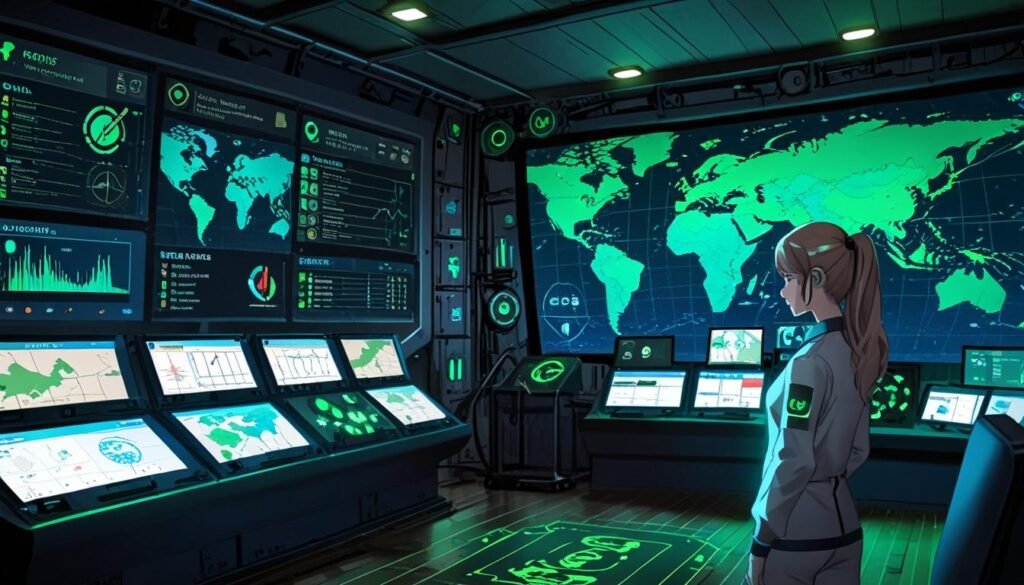**Global maritime sector**: ZeroNorth has rapidly grown since 2020, using AI and IoT to enhance vessel performance, reduce emissions, and optimise fuel use. The company recently achieved positive EBITDA and secured €89m funding, aiming to revolutionise shipping through data-driven sustainability and operational excellence.
Founded in 2020, ZeroNorth, a maritimetech company, has experienced rapid growth to become a significant player in the maritime industry’s digital transformation and sustainability efforts. From an initial team of six, the company now employs approximately 600 people distributed across ten global offices. ZeroNorth serves over 250 clients, including shipowners, operators, and cargo owners, and its platform currently monitors around 5,500 vessels. The company has also expanded through the acquisition of three startups, one of which is Alpha Ori Technologies, a specialist in Internet of Things (IoT) products that provide high-frequency data from onboard sensors.
In December 2024, ZeroNorth reached a financial milestone by recording its first month of positive earnings before interest, taxes, depreciation, and amortisation (EBITDA), driven by significant growth that resulted in nearly $40 million in annual recurring revenue (ARR) for the year. Additionally, the company announced it secured $20 million in debt financing from CIBC Innovation Banking, raising its total funding to over €89 million.
ZeroNorth’s chief executive officer, Søren Meyer, described the company’s core mission as helping the maritime sector optimise commercial performance while reducing carbon emissions. Speaking to Tech.eu, he highlighted the complexities facing the shipping industry today, particularly those arising from the energy transition and increasingly stringent regulations. According to Meyer, the sector needs unified technology solutions that simplify operations and improve decision-making processes.
ZeroNorth offers six principal services, leveraging data analytics and artificial intelligence (AI) to deliver insights that enhance voyage planning, vessel performance, fuel management, and commercial decisions. The platform is designed to accommodate the varying levels of connectivity across the shipping industry, where some ships maintain full-time connectivity while others only connect when docked. Despite these challenges, Meyer explained, “our platform still allows users to sync and update data when they do connect.”
A key component of ZeroNorth’s technology suite is its use of IoT and digital twins—virtual replicas of physical vessels that collect and analyse vast amounts of sensor data. These technologies allow the company to predict vessel behaviour by utilising information from similar ships, enabling predictive maintenance and operational optimisation. Meyer elaborated, “Our products are designed to analyse vast amounts of data, make intelligent, automated recommendations, and enable seamless information flow from ship to shore and throughout the entire value chain.”
He provided examples of the benefits this technology offers, stating: “We can assess when a vessel needs cleaning or detect early signs of potential failures in key components like pumps and sensors. This enhances operational efficiency, improves safety, and reduces fuel costs.”
Fuel efficiency represents one of the primary sustainability challenges in shipping, according to Meyer. He emphasised that the issue is not solely about reducing fuel consumption but managing it more efficiently. Even on fixed routes, vessels can optimise fuel use by operating engines and auxiliary systems more effectively. However, Meyer pointed to route optimisation as the area with the most substantial impact: “By dynamically adjusting routes based on weather, currents, and swell conditions, we’ve seen fuel savings of up to 15 per cent per voyage. This is significant, and when combined with engine efficiency improvements, the cost and emissions savings add up.”
ZeroNorth’s platform transforms data-driven insights into actionable strategies for various stakeholders in the maritime supply chain, including vessel owners, commercial operators, charterers, cargo owners, and bunker suppliers. Its ultimate objective is to facilitate operational, sustainable, and digital excellence, steering the industry towards zero emissions.
In discussing ZeroNorth’s rapid progress, Meyer noted that success in the traditional and complex maritime sector stems from addressing significant challenges while fostering strong client relationships. He described the industry as a high-stakes B2B SaaS environment involving multiple stakeholders such as operators, technical managers, and finance teams. “Once a company adopts and integrates our platform into their operations, it becomes an essential tool rather than just another software purchase,” Meyer explained.
He further asserted that clients are motivated not only by regulatory compliance but also by tangible financial benefits: “When we can show customers both CO2 reductions and cost savings, it becomes a no-brainer for them to invest in our technology.”
Looking ahead, ZeroNorth aims to develop a more interactive platform powered by generative AI. Meyer envisioned a system where an operator can query vessel performance in a conversational manner and receive automated summaries of optimisations, route change suggestions, and options to override decisions. “The goal is to create a seamless, intuitive user experience that requires less manual input while delivering smarter insights,” he said.
In terms of market expansion, ZeroNorth is exploring growth opportunities across different segments of the shipping industry. While initially focusing on oil and gas maritime operations, the company has recently made inroads into container shipping. Meyer highlighted the need to tailor solutions to the unique technical and operational requirements of each segment. The company also remains committed to acquiring complementary businesses that can accelerate its mission and enhance its platform’s capabilities.
ZeroNorth’s development exemplifies the ongoing digitalisation and sustainability efforts underway in the maritime sector, combining cutting-edge technology with strategic expansion to meet the evolving demands of the global shipping industry.
Source: Noah Wire Services

